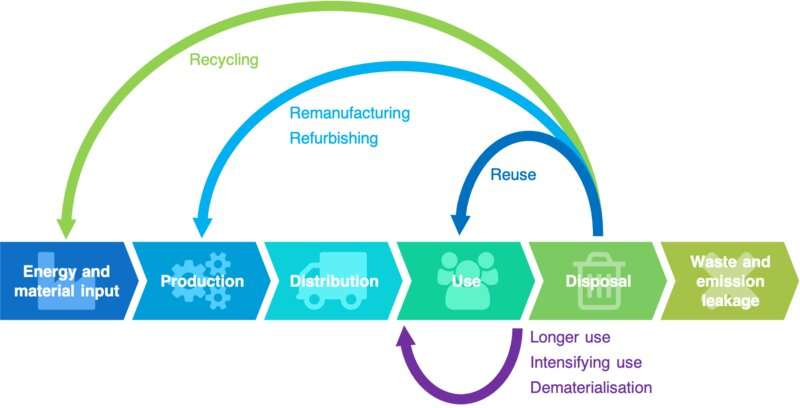New customer behaviours are key to developing circular economy, report finds

Consumer behavior needs to change fundamentally to ensure the successful transition to a circular economy, according to a new report.
Titled "Engaging Customers in a Circular Economy," the report presents an initial framework for organizations looking to reshape customer journeys, whether through participation in sharing models, returning packaging, repair schemes or other circular business models.
Published by the Exeter Center for Circular Economy and business consultancy Clarasys, the report highlights the crucial role of customer behavior in creating a less wasteful and resource-intense world.
It states that the transition to a circular economy will require companies to go beyond just making new circular products and services, and take meaningful steps to change customer behavior as well.
Companies will not only have to meet the needs of their customers, particularly regarding factors such as quality, price, convenience, identity and trust, but also be mindful of issues such as hygiene and contamination of used products, language and communication used to market new offerings, and the level of circular skills required to maintain products for longer.
Customers in turn would become stewards and maintainers of products, value and materials, creating a new relationship between producers, customers and products based on transparency, trust and emotional connection with the products they use.
Within circular economy research only around 10% of peer-reviewed papers focus on "consumption," "customers" or "users," and previous researchers propose this focus on customer experience is the missing component for companies seeking to embed circular business models.
The report is therefore aimed at organizations that want to engage in the circular economy and bring their customers on board.
By comparing typical "take-make-waste" linear customer journeys with circular ones it outlines what a B2C customer journey of the future would look like, considering factors such as circular design principles, mindful consumption focused on needs, community-based consumption and a greater focus on affordability to ensure products are accessible to all.
The report's ultimate goal is to "enable organizations, both B2B and B2C, to design and embed circular journeys that are desirable for customers, and viable and feasible for the business."
Dr. Merryn Haines-Gadd, a postdoctoral research associate at the University of Exeter Business School, said: "In a circular economy, there is an expectation and hope that customers will become stewards of products. As a result, customer journeys will evolve into continuous loops of engagement and interaction with organizations, all so we can ensure products and materials retain their value and are kept within the system.
"So it is vitally important we continue to understand this interplay in more detail so we can ensure the successful implementation of circular products and services."
"We intend to continue to partner and conduct primary research with organizations and customers to further investigate circular economy friction points."
Sam Maguire, Sustainability Lead at Clarasys, said: "At Clarasys we want to help our clients create circular customer experiences that actually work. This means fully understanding what might motivate customers to engage in a circular model and what producers need to put in place to make them work.
"This literature review indicates some of those areas and we are very excited for further collaboration with Exeter on a primary research program where we can find out more with exciting providers of circular business models."
Provided by University of Exeter



















